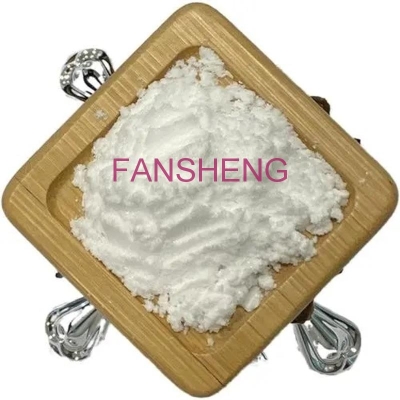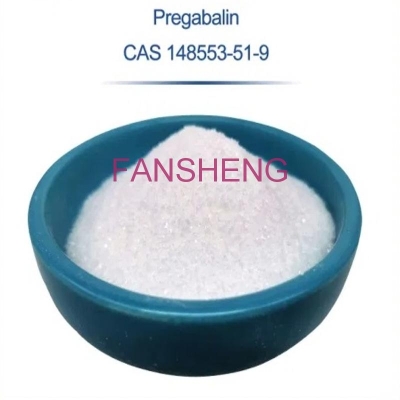-
Categories
-
Pharmaceutical Intermediates
-
Active Pharmaceutical Ingredients
-
Food Additives
- Industrial Coatings
- Agrochemicals
- Dyes and Pigments
- Surfactant
- Flavors and Fragrances
- Chemical Reagents
- Catalyst and Auxiliary
- Natural Products
- Inorganic Chemistry
-
Organic Chemistry
-
Biochemical Engineering
- Analytical Chemistry
- Cosmetic Ingredient
-
Pharmaceutical Intermediates
Promotion
ECHEMI Mall
Wholesale
Weekly Price
Exhibition
News
-
Trade Service
Myasthenia gravis (MG) is an autoimmune disease mediated by immunoglobulin G (IgG) that continuously affects the life and health of patients and increases the burden on society1
.
Previous studies have shown that the neonatal Fc receptor (FcRn) antagonist efgartigimod is an innovative therapy that removes pathogenic IgG, but reducing pathogenic IgG can also reduce total IgG levels by 2-4
。 Does efgartigimod therapy increase the risk of infection in MG patients, and does it lead to changes in white blood cell levels? What are the clinical guiding significance of these changes? Next, let's take a look at the latest news
in this regard at the 2022 AANEM conference.
for MG patients in China.
Long-term immunosuppressant therapy in MG patients may lead to a further decline in their immune function and increase the risk of
infection.
Studies have reported an incidence of approximately 19% of infections in patients with MG receiving immunomodulatory therapy5
.
At the same time, infection is also the main cause
of worsening symptoms and myasthenic crisis in MG patients.
One study showed that 30% of 212 exacerbations in MG patients were due to infection, followed by pharmacological factors and other unknown causes6
.
Efgartigimod, a human IgG1 antibody Fc fragment, is the first FcRn (neonatal Fc receptor) antagonist approved by the US FDA7
。 efgartigimod can competitively block endogenous IgG from binding to FcRn on the surface of human vascular endothelial cells, promote IgG degradation in lysosomes, thereby accelerating IgG clearance in vivo8, especially in autoantibody-mediated immune diseases such as MG, which can play a role in removing pathogenic antibodies
。
The main therapeutic mechanism of Efgartigimod is the clearance of IgG, so does it increase the risk of infection for MG patients who have been treated with immunosuppressants for a long time? At the recent 2022 American Association of Neuromuscular and Electrophysiological Diagnostic Medicine Annual Meeting of Neuromuscular & Electrodiagnostic Medicine Annual Meeting (AANEM), a summary of
efgartigimod infection was published.
efgartigimod did not significantly increase the risk of infection, most infections were mild to moderate, and the risk of infection did not increase with the repeated cycle of efgartigimod treatment
。
According to the results of the ADAPT study released in the oral report 10 of the 2021 EAN Conference, the incidence of infection in the efgartigimod group and the placebo group was similar, with 46.
4% and 37.
3%, respectively (Figure 1 left).
efgartigimod treatment did not significantly increase the risk of infection, and most infections were mild to moderate
.
Common types of infection are nasopharyngitis, upper respiratory tract infection, and urinary tract infection (Figure 1, right).
Fig.
1 Overall infection-related adverse events (left) and infection type (right) in the ADAPT study
were observed during long-term follow-up.
In a follow-up period of 183.
58 person-years, 55.
6% (n=90) of patients developed more than one infection, of which 6 patients developed 8 serious infections (COVID-19 [n=3], pneumonia [n=2], dysentery, septic shock, and urinary tract infection 11
).
When assessed by IR (incidence rate = total number of events / person-years followed), eliminating the effect of differences in the number of patients and follow-up time between the placebo and control groups in the ADAPT and ADAPT+ studies, the interim analysis of the ADAPT+ study looked at 217.
55 person-years in the treatment group and 34.
51 person-years in the placebo group, and the IR treatment group with the most common infections was smaller than the placebo group (Figure 2).
11
。 Again, this evidence shows that efgartigimod treatment does not significantly increase the risk of infection, and that the risk of infection does not increase
with the repeated cycles of efgartigimod treatment.
Figure 2 Summary of adverse events (AEs) in ADAPT and ADAPT+ studies
The mean count of white blood cells remained unchanged from baseline during treatment and was consistent with the placebo control period
.
Long-term use of traditional therapeutic drugs such as azathioprine can lead to leukopenia13, which in turn leads to decreased immunity and increased risk of infection12
。 But the results of the ADAPT study and its open-label extension study ADAPT+ showed that efgartigimod did not increase the risk of
infection in patients with gMG.
In patients who ≥ 1 treatment-developed hematologic abnormalities (grade ≥1), there was no significant difference in infection rates between efgartigimod and placebo (Figure 3)11
.
Fig.
3 Patient infection ≥ 1 treatment during the ADAPT study - acute hematologic abnormalities (grade ≥1)
The results showed that the reduction of WBC count during Efgartigimod treatment was a transient and sporadic event that did not persist
over time.
Figure 4 Average leukocyte changes since study baseline in the ADAPT+ (cycles 1-7) safe population
Efgartigimod, due to the uniqueness of its mechanism, can reduce all IgG titers14, but its decrease is transient and does not hinder IgG production and secretion.
The results presented at the AANEM conference and previous research data showed that efgartigimod did not significantly increase the risk of infection, and the risk of infection did not increase
with the repeated cycle of efgartigimod treatment.
Expert profiles
Professor Xi Jianying
Deputy Chief Physician, Department of Neurology, Huashan Hospital, Fudan University
Mainly engaged in the diagnosis and treatment of neuromuscular junction diseases and related research
.
He has been working in the Department of Neurology of Huashan Hospital since 2007 and received his Ph.
D.
from Fudan University in 2016.
From May to July 2018, he visited the neuromyopathy group of John Hopkins Hospital in the United States
.It focuses on the diagnosis and treatment of myasthenia gravis and congenital myasthenia, especially the new biological targeted therapy
for myasthenia gravis.
He has participated in the compilation or translation of many professional books, such as "Concise Neuromuscular Diseases", "Treatable Rare Diseases", etc
.
He presided over one National Natural Science Youth Fund, participated in a number of national and municipal projects, and published more than 14 SCI papers as the first author or corresponding author
.
Expert reviews
Efgartigimod is the world's first FDA-approved FcRn antagonist and the first approved therapeutic to target immunoglobulin (IgG) circulation
.
As a small molecule FcRn antagonist that does not specifically target total IgG, it undoubtedly ushered in a new era of antibody-mediated autoimmune disease treatment, but the risk of infection after IgG decline is indeed a very important reality for patients and clinicians
.
The latest 2022 AANEM conference also conveyed to us the latest data on the risk of infection after efgartigimod treatment, and patients with mild to moderate infections after efgartigimod treatment and placebo groups had a low proportion of mild to moderate infections, and there was no significant difference between the two groups, and the occurrence of these infections may be related
to the patient's underlying immunosuppressive therapy.
Numerically, the proportion of upper respiratory tract infections and urinary tract infections was slightly higher in the treatment group, but these infections were mild and clinically controllable
.
Similarly, the efgartigimod group had no significant changes in mean lymphocytes, neutrophils, and WBC counts after receiving 4 efgartigimod
injections 。 There was no significant difference between the two groups from the proportion of pathological WBC decline (<3.
0X10^9/L, 28/84 vs 20/83), neutrophil cells (< 1.
5X10^9/L, 11/84 vs 7/83) or neutrophil decline (< 0.
8X10^9/L, 11/84 vs 6/83) and the proportion of infectious events after WBC decline.
Therefore, the decline in WBC also seems to be related to basic immunotherapy, but not efgartigimod therapy
.
Of course, the reversible recovery of IgG after efgartigimod treatment also makes MG patients have more flexible selectivity
in the timing of Efgartigimod medication.
It is believed that with the improvement of the accessibility of Efgartigimod and other FcRn antagonists, the real-world data of Efgartigimod alone will bring us more clear conclusions, and we also look forward to the future emergence of antibody-specific selective FcRn
.
ZMCNNP20221117008 Expire Date 2023/11/17
References:
[1] Ludwig RJ, et al.
Front Immunol.
2017; 8:603.
[2] Kridin K, Schmidt E.
JID Innov.
2021; 1(1):100004.
[3] Schmidt E, Kasperkiewicz M, Joly P .
Pemphigus.
Lancet.
2019; 394(10201):882–894.
[4] Stanley JR, Amagai M.
Pemphigus.
N Engl J Med.
2006; 355(17):1800–1810.
[5] Prior DE, et al.
Muscle Nerve.
2018 Jun; 57(6):927-931.
[6] Gummi RR, et al.
Muscle Nerve.
2019 Dec; 60(6):693-699.
[7] style="margin-right: 8px;margin-left: 8px;line-height: 1.
5em;">[8] Gil I Wolfe,et al.
J Neurol Sci.
2021Nov15; 430:118074.
[9] Howard JFJr, et al.
Lancet Neurol.
2021Jul; 20(7):526-536.
[10] Oral presentation: EAN (European Academy of Neurology) Conference; 19-22 June 2021.
[11] S Muppidi, et al.
2022 AANEM P193.
[12] Wan Xuehong.
Diagnostics.
8th edition.
Beijing:People's Medical Publishing House,2013.
[13] Neuroimmunology Branch of Chinese Society of Immunology.
Chinese Journal of Neuroimmunology and Neurology[J].
2021,28(1):1-12.
)
[14] Jeffrey T Guptill, et al.
Autoimmunity.
2022 Dec; 55(8):620-631.
Past Review
☑ Is there also benefit in patients with seronegative myasthenia gravis? One of the 2022 AANEM Essentials Hot Review Series







